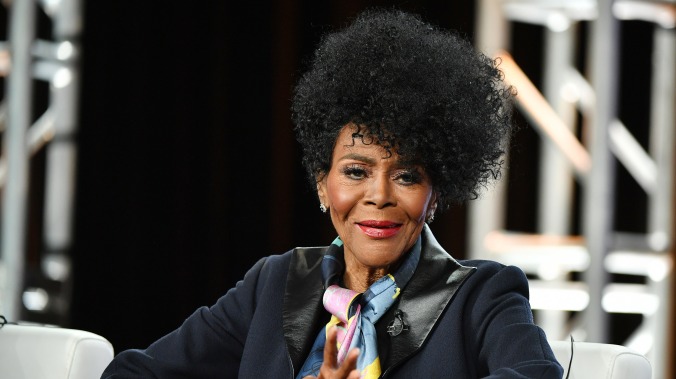R.I.P. pioneering actress Cicely Tyson

Cicely Tyson, the pioneering and award-winning actress whose fierce spirit illuminated both the screen and the stage, died on Thursday. Per Variety, her manager, Larry Thompson, confirmed her passing in a statement: “I have managed Miss Tyson’s career for over 40 years, and each year was a privilege and blessing. Cicely thought of her new memoir as a Christmas tree decorated with all the ornaments of her personal and professional life. Today she placed the last ornament, a Star, on top of the tree.” As of now, a cause of death has not been disclosed. She was 96 years old.
A proud Harlemite, Tyson first entered the cultural zeitgeist as a popular fashion model after getting discovered by an Ebony magazine photographer. With a dazzling smile and an unforgettable brand of charisma, it wasn’t long before she pivoted to acting. “Well, it happened because I learned that I could speak through other people,” Tyson very recently told NPR. “I was a very shy child. I was an observer. I would sit and observe and listen and watch people’s actions in order to understand what they were. I wanted to know what prompted them to say and do the things that they did.” She landed her first TV role in NBC’s Frontiers of Faith in 1951. Her first film role would arrive 6 years later with Carib Gold. The burgeoning actress really proved to be an unmitigated force in the 1960s, landing screen role after screen role until she nabbed a starring bid in the CBS series East Side/West Side, where she became the first Black actor to star in a television drama. Tyson was soon a household name, a scene stealer, and a trusted counterpart to some of the most celebrated performers in entertainment, including Sammy Davis Jr. in the film A Man Called Adam.
In the ‘70s, Tyson’s work began to garner the attention of the Academy, the Golden Globes, and the Emmys. In 1973, Sounder—the critically lauded dramatic film adaptation where she starred as Rebecca Morgan—earned Tyson her only Oscar and Golden Globe nominations. (She was, however, given an Honorary Academy Award in 2018.) Just a year later, she won two major Emmys for her titular role in the made-for-TV movie The Autobiography Of Miss Jane Pittman. If there was a story about critical moments in Black history—Roots, King, The Marva Collins Story—Tyson was at the forefront, distilling her natural gravitas and poise into every script.
On the stage, she was a beacon of grace and possibilities. From 1957 to 1969 she was consistently on (or off) Broadway in roles that varied from upstage to ensemble. One of her biggest parts was in French playwright Jean Genet’s The Blacks, where she played Stephanie Virtue Secret-Rose Diop. The cast was a microcosm of iconic Black culture: Maya Angelou, Louis Gossett Jr., James Earl Jones, Godfrey Cambridge, and Charles Cordone. Running for a total of 1,408 shows, it was the longest-running off-Broadway show of the decade. After that, her career shifted until she was predominately in TV and film. But even as her star continued to rise, she never quite shook her desire to take centerstage: In 2013, Tyson returned to Broadway to play Miss Carrie Watts in The Trip To Bountiful. It was her white whale opportunity, a part that she had been vying for since seeing the show decades prior. That year, she won a Tony for Best Actress In A Play. She reprised her role a year later in the Lifetime film adaptation.
It’s difficult to quantify Tyson’s impact in all facets of entertainment. It’s even harder to adequately state how much she meant to the Black community across multiple generations. Her career spanned seven decades, and yet she never shied away from new opportunities, like her return to Broadway in 2013 or her first music video appearance—Willow Smith’s “21st Century Girl”—in 2011. Just this Tuesday, Tyson released her memoir, Just As I Am, where she traced her life and career.
More importantly, Cicely Tyson taught Black women that they deserved to have a hand in their own destinies and not settle for figurative scraps. “I wait for roles — first, to be written for a woman, then, to be written for a black woman,” she explained to the Entertainment News Service in 1997. “And then I have the audacity to be selective about the kinds of roles I play. I’ve really got three strikes against me. So, aren’t you amazed I’m still here?”